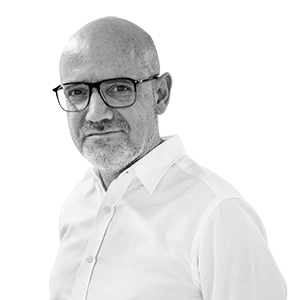Catalonia will be pallaquista or it will not be
The presentation of the biography of Josep Pallach brings together the president of the Generalitat, Salvador Illa, the president of the Parliament, Josep Rull, and the former presidents Jordi Pujol and Pere Aragonès


BarcelonaJosep Pallach's mark on Catalan politics was so deep that this is the only way to explain the presentation of the biography written by Joan Safont, Josep Pallach, politics and pedagogy (Pòrtic), which brought together in the same space, the Jaimes bookstore in Barcelona, the president of the Generalitat, Salvador Illa, the president of the Parliament, Josep Rull, and the former presidents Pujol and Aragonès. A reference for each of the three central political families of current Catalan politics. "The pallaquista gene exists," proclaimed Safont to describe a way of doing politics based on dialogue, tolerance and pragmatism.
Among the public were historical pallaquistas, such as Joan Tàpia, Joan Majó or Irene Rigau, and pallaquistas in spirit, such as the ERC deputy Carles Campuzano or the former general secretary of Junts Jordi Sánchez, today removed from politics. Pallach's daughter, Antonia, took the floor first of all to report that her mother, Teresa Juvé, 104 years old, is recovering from a broken femur.
Carabén's Lament
The presenter of the event, the director of the ARA, Esther Vera, made it clear from the start that this event was in itself an anomaly. "In France, Pallach would have schools named after him, squares, streets and a handful of biographies," she said. David Carabén also spoke as the son of a Pallaquista and author of a song, Give me more gin, David!, where the Catalan politician is discussed. Carabén nailed it when he spoke of the "Pallach mystery" and lamented to an unfazed Isla that he had not had a PSC of strict Catalan obedience.
But what did Pallach really think about issues that, half a century later, are still very relevant, such as "Catalan, the school or the relationship with Spain?" Vera asked. Safont responded with a phrase from Pallach that is very defining of his thinking, and perhaps also of the country, I would add: "As a Catalan, I am in favour of the right to self-determination, but as a socialist I am in favour of federation." In this apparent contradiction lies the nature of Pallaquism, this inseparable alloy between the values of social democracy and Catalanism and a pragmatism that leads him to become a outsider of the time. "Pallach was a prophet, a pioneer who could not see how his ideology, social democracy, was adopted by a social majority," explained Safont. Before, Josep Ramoneda, on behalf of Group 62, had already warned that in an era of revolutionary radicalism Pallach was a rare elderly. Someone who had collaborated with Andreu Nin (and whom he saw as too intellectual), who had fought against Nazism in the French Resistance, who had been involved in clandestine politics during Franco's regime, who had brought about the return of Tarradellas (despite having been confronted) and who was sponsored by the German SPD.
Towards the end, Esther Vera asks the question that everyone has in their head but no one dares to ask: "What would have happened if Pallach had not died on that fateful 11th of January 1977?" "The crystal ball is not a historian's tool, but he would have certainly played a prominent role in Catalan politics," Safont replies. Would it have been a left-wing Hill, as Ignasi Aragay has suggested? The only thing that is certain is that, seeing yesterday's event, Catalonia will either be pro-Pallaquista or it will not be.
